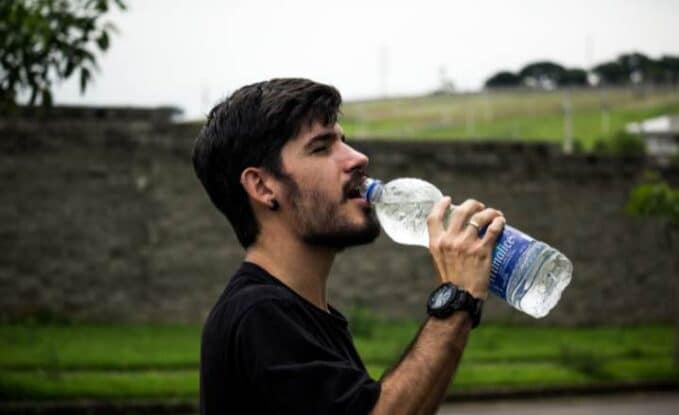Water is frequently regarded as a magical drink for weight loss, with claims ranging from increased metabolism to decreased appetite. But can something so basic as drinking water actually help you lose weight? In this post, we’ll look at the facts and fiction associated with the correlation between water and weight loss.
Connection of Water & Weight Loss
1- Curbs appetite: One of the most frequently mentioned advantages of drinking water for weight loss is its ability to suppress hunger. According to studies, drinking water before meals can help you eat less since it fills up your stomach and gives you a feeling of fullness. Furthermore, thirst might be misinterpreted as hunger, causing people to eat when they are genuinely dehydrated.
2- Increased calorie burn: While drinking water does not directly burn calories, several studies suggest that cold water may increase the body’s calorie expenditure. This is because the body must try to bring the cold water to body temperature, yet the effect is minor. Staying hydrated also promotes appropriate biological functioning, such as metabolism, which has an indirect impact on weight management.
3- Replacement of unhealthy beverages: Drinking water instead of sugary drinks like soda and juice can help you lose weight. Liquid calories in beverages like these are commonly overlooked and can contribute to weight gain over time. Individuals who drink water as their primary beverage can reduce their calorie intake and aid in their weight loss.
4- Increases exercise performance: Adequate hydration is essential for peak exercise performance, and staying hydrated during workouts can help people work harder and burn more calories. Water controls body temperature lubricates joints, and distributes nutrients to cells—all of which are necessary for physical activity. Dehydration, on the other hand, can cause fatigue, decreased stamina, and lower motivation to exercise.
Also read: 8 Unhealthy Food Items to Avoid for a Balanced Lifestyle

How to Use Water for Weight Loss?
1- Drink water before meals: Drinking a glass of water before each meal will help you limit portion sizes and avoid overeating.
2- Stay hydrated: Drink water throughout the day rather than just when you’re thirsty. Having a reusable water bottle with you might act as a reminder to remain hydrated.
3- Choose water over high-calorie drinks: Choose water as your main beverage, especially when dining out or attending social functions. Avoid sugary drinks and favour sparkling water or herbal teas.
4- Monitor urine colour: Pay attention to the colour of your urine as a sign of hydration level. Pale yellow pee often indicates appropriate hydration; however, black urine may indicate dehydration.


